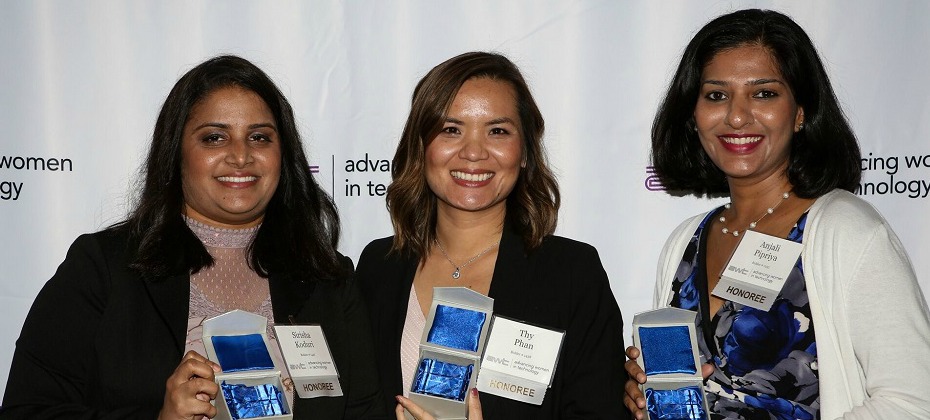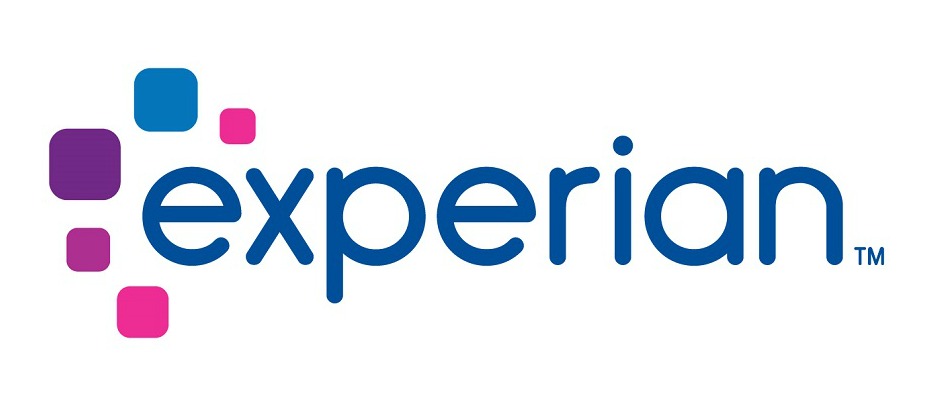World
News about Experian from all over the globe:

Positive female role models are important if we are to transform some of the preconceptions that the public, and more importantly young girls, have about a career in STEM. To achieve this, it’s important that the effort starts at an early age to breakdown the stereotypes and outdated views that certain professions are gender-specific. At Experian, we are committed to empowering more women to become data scientists. That’s why we were delighted to sponsor the Women in Data conference in November, to help inspire, educate and support women into the data industry. Further to that, we are absolutely thrilled to find out that Experian's data scientist Berenice Pila-Díez was announced as one of the 20 women in data and technology, a project showcasing women forging careers in the traditionally male-dominated fields of data and technology. We hope that Berenice’s story, along with the others, will act as inspiration for the next generation of girls (and boys) to follow in their footsteps and establish a successful career in STEM.

As Doug Conant, the former CEO of Campbell’s Soup once said, “To win in the marketplace you must first win in the workplace.” This is quite befitting as Experian celebrates being named a 2017 top workplace for the fifth consecutive year by the Orange County Register. While we work hard to run our business and service our clients, this recognition is a testament to our culture, which emphasizes collaboration, innovation and diversity amongst our employees. “We are proud to foster a global culture of continuous innovation,” said Craig Boundy, former chief executive officer, Experian North America. “Our goal is to create a culture where everyone has a real sense of belonging and trust and is comfortable showing up every day, being their authentic self.” Boundy continued, “We’re thrilled with our continued presence on the Orange County Register list as it validates the great work we do every day for consumers, clients and our communities.” Culture of Collaboration At Experian, we get the opportunity to work with a great group of people that truly want to make a difference in the lives of consumers and our customers, Experian employees do this by working to help people do important things to improve their lives and realize their ambitions; such as buying a car or home, funding an education, growing a business or protecting their identity. This commitment to put consumers first comes from our diverse culture and the collective strength of our highly motivated team members who are constantly collaborating to help Experian create a better tomorrow for millions of people every day. At the Forefront of Innovation As part of our work, we have embraced a culture of discovery that has enabled us to grow and evolve while remaining at the forefront of innovation. We continue to have a positive impact on consumers, businesses and the economy with our products, technology and innovations. From finding breakthroughs around better utilizing data, to identifying ways we can make access to credit faster and simpler for millions around the world. This past year has been a year of significant milestones, including our partnership with Finicity, the introduction of our Text for Credit product, and our drive to create a more open and adaptive technology environment by implementing API capabilities across the Experian network. Giving Back to the Community We are equally committed to giving back to our communities by creating better tomorrows. From volunteering with the Jessie Rees Foundation – which helps children deal with cancer – and the Blind Children’s Learning Center. This year Experian also provided a $750,000 gift to create the Experian Assistant Professorship in Machine Learning at Chapman University. This investment is being used to expand machine learning opportunities at the university’s Machine Learning and Assistive Technology Lab (MLAT), where Chapman researchers use big data and technology to address challenges of social significance like autism. The gift is the latest of a long series of collaborations between Chapman and Experian. Several years ago, Experian and Chapman began a partnership that involved placing graduate students to become data scientists in internships within Experian to provide them real-world, hands on training. Since then, the partnership has blossomed to include embedding a Chapman faculty member within Experian to better ground the academic community on how data scientists work within the private sector to better shape their curriculum. We’ve also supported scholarships and programs at Chapman to ensure that the field of data science remains inclusive, diverse, and talented. We’ve also helped with the Hurricane Harvey relief efforts. From the moment the storm hit, our team was already rolling up their sleeves. Our corporate responsibility team set up a donation link right away for employees to make contributions to the South/Central Texas American Red Cross, providing critical aid to families. We were met with an overwhelming amount of generosity from our employees, and raised more than $90,000. Also, we partnered with 14 banks with branches in Texas who provided free credit and identity checks for hurricane victims, along with free memberships to our identity theft protection product. Recognition and Awards We continued to be recognized for our innovation and diversity by leading publications and industry organizations. Experian was named to Forbes Magazine’s Top 100 list of the “World’s Most Innovative Companies” for the fourth consecutive year. The Advancing Women in Technology (AWT) organization recently honored several Experian women at its 16th Annual Scholarship event. We are also one of 28 companies named to the Grace Hopper Leadership Index of companies whose representation and development of women technologists is above the mean. We are very proud to be among this select group of companies recognized by the Register for our positive workplace culture that attracts and retains top talent in Orange County, as well as our other locations across North America. Our employees are committed to helping to create better tomorrows in our communities through social responsibility activities, technology and innovation, and through our everyday work and business purpose.

In the United States, many individuals struggle with managing their money. In fact, a recent study by Mintel found that only 19 percent of respondents would rate themselves highly on their financial knowledge. As the Director of Public Education at Experian, this finding, while concerning, is not surprising. Since joining Experian twenty years ago, my team and I have spoken with thousands of consumers across the country about personal finance. From bank presidents to blue-collar workers, the individuals I speak to all want the answer to one question – “how can I plan for my financial future, taking into consideration life’s ups and downs?” The Mintel survey found that 21 percent of Americans today are not at all confident about reaching their financial goals, but my team and I are working every day to change this. We are committed to working with various communities within the U.S. to help them better understand their finances. We provide training for young men and women in the Air Force about how to succeed financially while on active duty and when returning to civilian life as part of a program with the Hero’s at Home organization. In partnership with the Society for Financial Education and Professional Development, we also educate young adults at historically black colleges and universities, answering questions about building credit and managing money. Through the LifeSmarts Competition, we challenge high school students to compete on knowledge of personal finance. And through some of our other programs, we work with low-income women and immigrant populations to promote financial inclusion by helping them establish credit or understand loans. Through these experiences, we’ve met countless inspiring individuals from various backgrounds with compelling success stories. For example, a member of the Air Force once told us that, following one of our sessions, she was able to improve her credit and buy her first home. Stories like this are why I am so proud to be part of the only dedicated financial education team in the industry. I am excited to continue empowering people from all walks of life to reach their financial goals. Learn more about the Mintel research here.

I’m the head of Serasa Experian’s DataLab, where my colleagues and I focus on using data and artificial intelligence to solve complex challenges for our customers. Our team of data scientists and applied research practitioners use data analytics to create new products and services that address world needs. One successful product is RWA, a platform that analyzes the dynamics of cities to help businesses make informed decisions on their next site location. Occasionally, however, we also discover innovative ways data can solve our own obstacles at Experian. Last year, several departments within Experian were facing similar challenges. We realized the problem could be solved if each group got together to share their perspectives, brainstorm and then collaborate on a common solution. At the end of that project, our teams decided to find more ways to encourage cross-team collaboration within the DataLab network more often. That’s when we decided to launch our first hackathon. Hackathons are events where a large number of people are challenged to participate in collaborative computer programming projects. Various challenges are proposed and the goal is to optimize, reinvent or replace current solutions, providing the participants with the freedom to select their project and team. For our inaugural hackathon, we challenged 80 programmers, designers and project managers to work together for more than 24 hours to create efficient authentication and retention processes to benefit customers. In our second hackathon, we asked participants to create a new Serasa Experian app that would improve relationships with consumers, along with new products that would utilize Experian’s database. The winning app solution ended up using positive registration data to improve personal credit scores for consumers. This app is now in the process of implementation. For our most recent hackathon, held in 2017, we challenged 200 employees and external participants to develop solutions. One of the challenges was to develop solutions to improve the lives of visually disabled individuals. We invited three people with visual disabilities to share their experiences, giving the teams a personal perspective for how a new product could improve their daily lives. For more than 40 hours, the teams worked tirelessly – utilizing data analysis, product design and business planning – to develop their innovative ideas. Although we have only hosted three so far, I hope to continue bringing the culture of the hackathons into our day-to-day activities at Serasa Experian. By collaborating more with coworkers in the past couple of years, I have been inspired by their ability to approach problems in unique ways. I am proud to foster such a collaborative environment and excited to see my coworkers prove a fundamental belief at Experian - hard work can also be fun when you work hard and play hard.

Amid a shortage of women pursuing STEM careers, organizations must be committed to helping women who have chosen to enter the tech industry and are poised for success in key areas such as collaboration, creativity, innovation, leadership, and transformation. At Experian, we are an advocate for diversity, inclusion, and gender equality in technology functions and beyond. Showcasing the impact women have in the tech community, the Advancing Women in Technology (AWT) organization recently honored several Experian women at its 16th Annual Scholarship event. Keynote Presentation Experian’s president of partner solutions, Jennifer Leuer, was the featured keynote speaker. As part of her presentation, Leuer encouraged the audience to create a culture of confidence to advance women. “This year’s headlines marked a watershed year for women in the workplace. We need to keep that momentum going by creating a culture of confidence in the workplace, with our families and in our communities,” said Leuer. “One of the many ways we can do this is through mentoring. By providing more women with support and varied perspectives, we assist them with navigating new challenges with confidence.” AWT 2017 Outstanding Executives in Technology Award The Outstanding Executives in Technology award was given to Faith Gaudino, Experian’s senior vice president of corporate project management, for her successful career in technology. For nearly 40 years, Gaudino has worked on Experian’s strategic technology portfolios. Her work is key to maximizing Experian’s investments in technology, business expansion, security and business transformation. “What I enjoy most about my position is the diversity of projects that I work on,” said Gaudino. “My team gets involved in everything from acquisitions to rolling out the latest technology changes throughout the organization. This diversity allows me to constantly learn new things. I am proud to be recognized by the AWT and I hope to inspire other women to pursue and continue careers in technology.” AWT 2017 Rising Women in Technology Award The Rising Women in Technology award recognizes women who have successfully established careers in a variety of technical positions such as engineering, software development, business analytics and management. Five women from Experian were given this award: Becky Clay, marketing automation campaign manager - Clay is responsible for increasing response and conversion rates for the company’s enterprise marketing and internal communications campaigns. Sirisha Koduri, web development lead - Koduri leads the development of Experian’s global content management system. Thy Phan, senior marketing analyst - Phan works on email marketing for the B2B businesses across the Experian enterprise. Anjali Pipriya, software development expert - Pipriya helps develop and maintain the Experian lead capturing platform. Amber Garcia, expert project manager - Garcia manages technology projects for Experian’s online and mobile credit products. “In the technology industry, women have a lot of opportunity to have a voice and be successful,” said Garcia. “At Experian, I have gained confidence in my work, grown and found my voice. I feel this award is a milestone in my career that shows how far that I have come.” Experian puts significant effort in attracting a diverse workforce. We are one of 28 companies named to the Leadership Index of companies whose representation and development of women technologists is above the mean. We also participated in the 2017 Wonder Women Tech Diversity & Inclusion Conference and the Grace Hopper Celebration of Women in Technology Conference.

I work at SEGA, a global games company. I first met Nakamura-san, my contact at Experian, about eight or nine years ago. I remember telling him at the time that I was a little sceptical of credit report and analytic companies – I thought they were either too expensive or their reports weren’t detailed enough. However, a year later I needed help from a company like Experian, and I thought I’d put them to the test. My team and I were starting to communicate with overseas markets, to work with companies around the world. So, I phoned Nakamura-san. It was a business negotiation, so I had my poker face on – I played the usual mind games you have to, insinuating that if Experian did this job well then our company might be able to offer them even more business in the future. Safe to say, they passed the test. We’ve been building a really positive relationship with Experian for the last eight years. We’re working with companies in Hong Kong, Taiwan and London at the moment. To work with them, we need information – for instance, we need to know if they’re actually located where they say they are. Even if a company gives us an address, it’s always possible that it operates from a different country – we’ve all heard about companies and their tax havens. When we have these questions, Nakamura-san and his team at Experian collect and analyse data on these companies, and give us very thorough information – breaking it all down and explaining everything to us really clearly. It’s really difficult to get the rich, detailed analysis of data you need, but Experian provides us much better data than any of our previous credit research companies managed to. They consult with us, and help us use this data to get our business to a better place. I’m very grateful for it – they’ve added great value to our business. Mr. Shinji Mutazono, Team Manager, SEGA Group Companies Finance Department, SEGA Holdings CO., Ltd.

“I’ve been working with Turkcell for about six years now. I was on my way to have lunch with my main contact there, Elif, and I bumped into so many familiar faces. We agreed that you don’t often get that kind of long, trusted relationship in business. About two years ago, Elif explained to me that Turkcell needed help keeping customer communications fresh and relevant. Turkcell had a fixed weekly marketing plan, but a week is a long time in marketing. Customers were interacting with them all the time, across lots of different channels. These different types of customer communication cancelled out Turkcell’s planned weekly messages. They had to cancel more than half of their planned contacts. The marketing team were really frustrated – this was a complex challenge to fix. We wanted to create a marketing tool that meant Turkcell could speak to their customers every day instead of once a week. And so the right messages got to the right people at the right time. The team we got together on this project were based all over the world: Turkcell and an Experian team in Turkey, me and my team in Nottingham, our software development team in Bulgaria, our product development over in Washington, and Vusal in Monaco who helped us completely automate the process. Vusal’s fluent Turkish certainly came in useful. I flew over to Turkey a few times during the project. Being onsite made a big difference – it meant we could understand and fix issues in hours, rather than days. There’s one particular time that stands out. It was five weeks before the launch, so we had loads to get through. We worked non-stop for two weeks straight, right through the weekends, making sure nothing would stop us getting the daily marketing tool up and running. We’d each bring in different food and fruits for our ‘table picnic’ to keep us going. There was a lot of attention focussed on this project. When it finally went live, we had a ‘phew’ and a ‘wow’ moment. And then we saw the difference it made. It’s done exactly what we wanted it to do and Turkcell’s take-up rates have improved. And now we’ve won a Global Telecoms Business Innovation award for it. It’s a joint award, for both Turkcell and Experian – which feels right. It was hard work, but worth it.”

The UK is home to some of the brightest minds in the Fintech sector. It is a hive of innovation that is starting to deliver consumer services which challenge conventional thinking about the role and function of traditional service providers. During the last few years we have seen customers develop ever-increasing expectations when it comes to digital services. People are demanding engaging content with useful and simple functionality which delivers a great user-experience. And it is the new entrants into the marketplace, the disrupting Fintechs, who appear to be most effective at meeting this need at present. Start-ups also have the advantage of agility and speed. And the impact of the rapidly evolving Fintech community should not be underestimated. Although we are one of the biggest companies in the world, Experian’s own pioneering application of data, analytics and technology plays an important role in finding new innovative solutions too – from helping consumers understand and improve their financial situations, to supporting the growth of businesses, managing risk and protecting against fraud. Now we’re looking to discover and support a new generation of innovators and entrepreneurs who will change the future of finance. That’s why we’re so delighted to be working with Tech City UK on the FinTech4All competition. The Experian Spotlight Award is designed to recognise a particularly outstanding concept, product or service from all those who enter the contest. It’s our intention to build the award package with the people who win it, depending on what they need – whether that’s mentoring, advice, access to our own expertise, or something else. It’s a hugely exciting project and it’s going to be really interesting to see what kind of original ideas emerge. Interested? Part of a start-up that wants to make financial services work for everyone? Then visit FinTechForAll to enter.

In the aftermath of Hurricane Harvey, the nation is waiting to assess the scope of the damage.